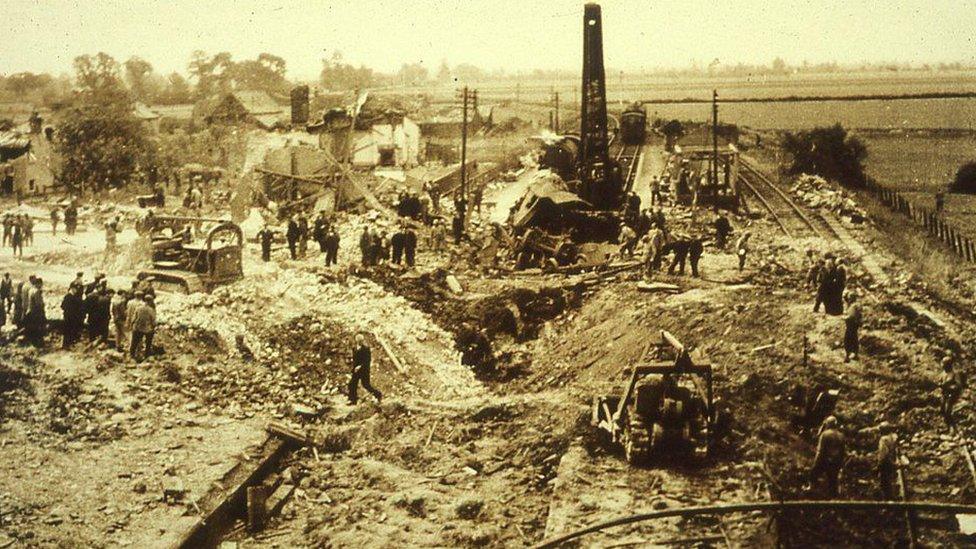New WW2 rail disaster information found 80 years on
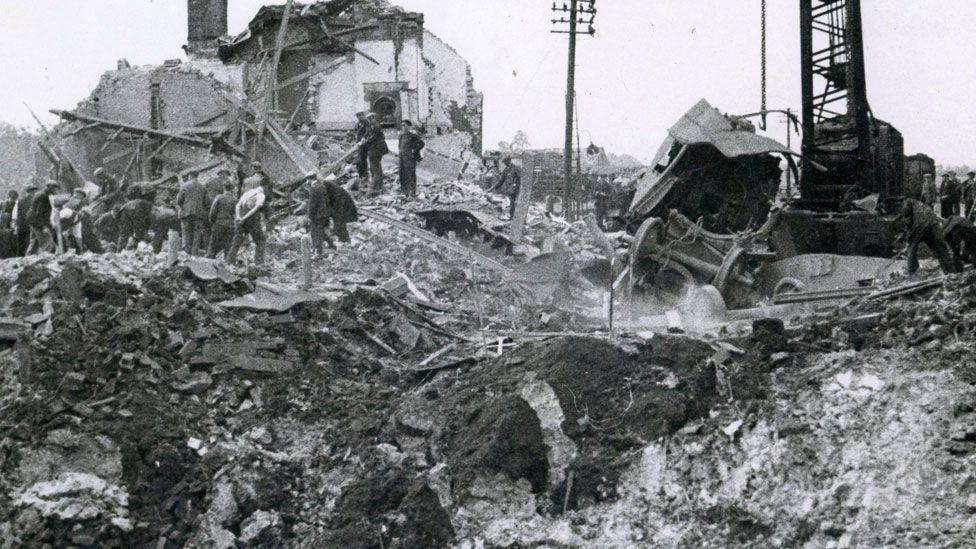
The explosion killed two men and seriously injured a third, causing a crater 66ft (20.1m) in diameter and 15ft (4.6m) deep
- Published
New evidence about what happened when a World War Two munitions wagon exploded is still being discovered 80 years after the event, according to an historian.
The train was travelling through Soham, Cambridgeshire, on 2 June 1944 when the wagon packed with bombs caught fire, but only two people were killed due to the brave actions of its driver, fireman and guard.
Donna Martin said a recently donated fire service log revealed firefighters initially spent an hour tackling a blaze at the town's gas works, not realising it was caused by "something down the line".
The town is marking the disaster's 80th anniversary with a church service and the pealing of bells.
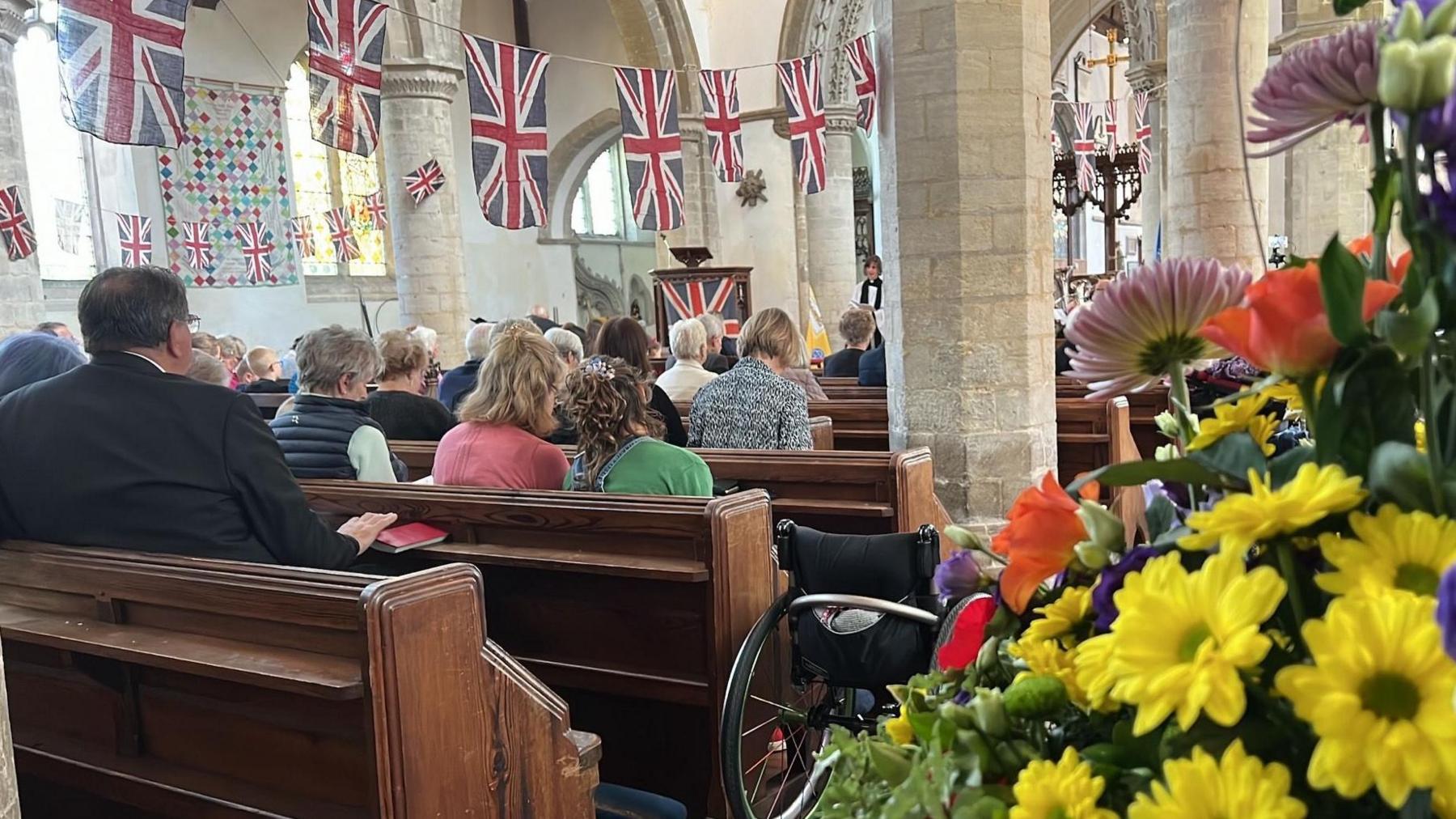
A service was held at 10:00 BST to remember the men who died in the disaster
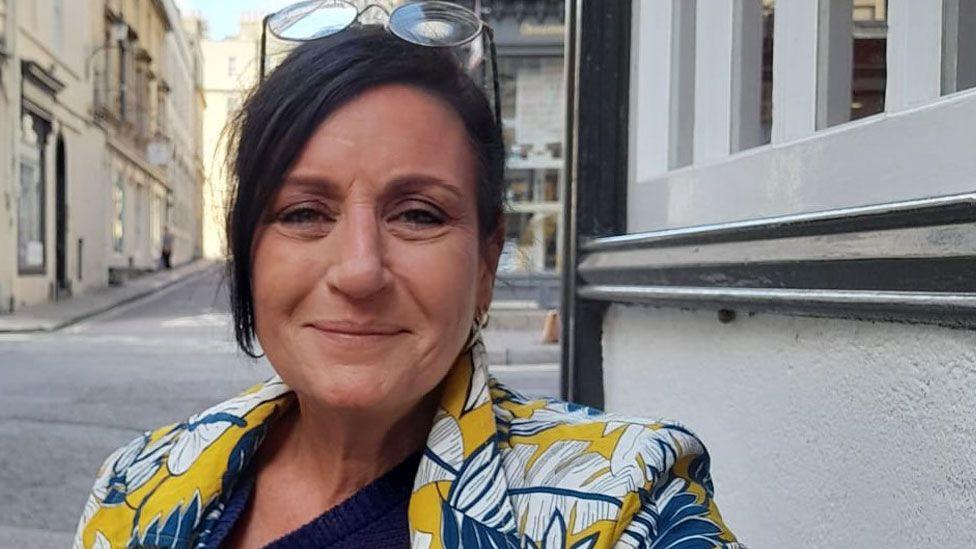
Soham marks the anniversary every five years and each time more information about it comes in to the town museum, said historian Donna Martin
Mrs Martin, from Soham Museum, said: "We didn't know about the gas explosion until after the 75th anniversary, when the Soham Fire Service's logs were donated to us.
"When the explosion happened, the gas works and some of the houses nearby caught fire, and what is very revealing is the log shows firemen calling in to the main base at Newmarket about the gas main for the first hour."
The munitions exploded at 01:45 BST on a warm, moonlit night, with a detonation heard as far away as Cambridge, about 20 miles (32km) south west of Soham.
The log revealed firefighters were called to the gas works blaze at 01:51, but it was not until 02:51 they reported an "ammunition train on railway: engine wrecked about 100 yards (91m) distance".
Mrs Martin believes it was only at this point firefighters realised the cause and scale of the disaster.
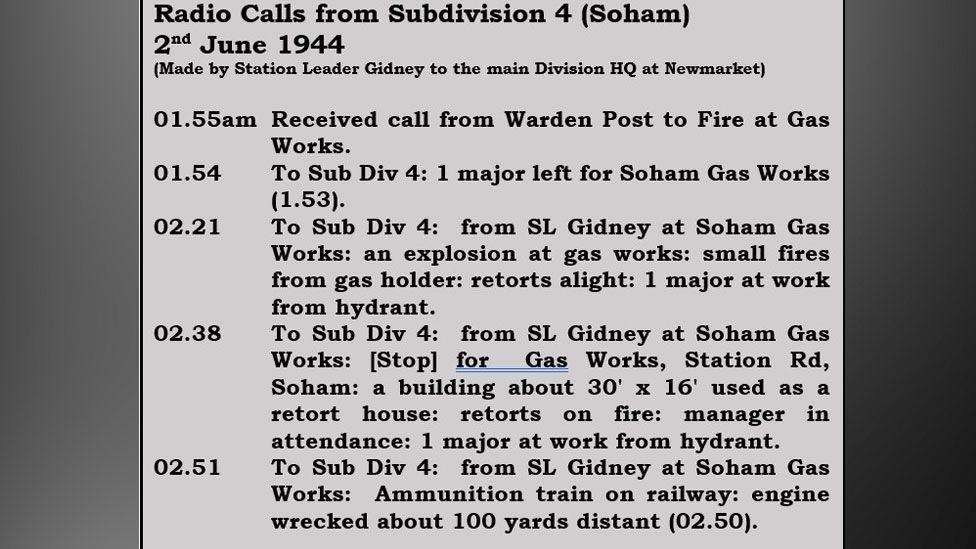
The fire service logs were donated after the 75th anniversary and have been transcribed (above), because the originals were very faint
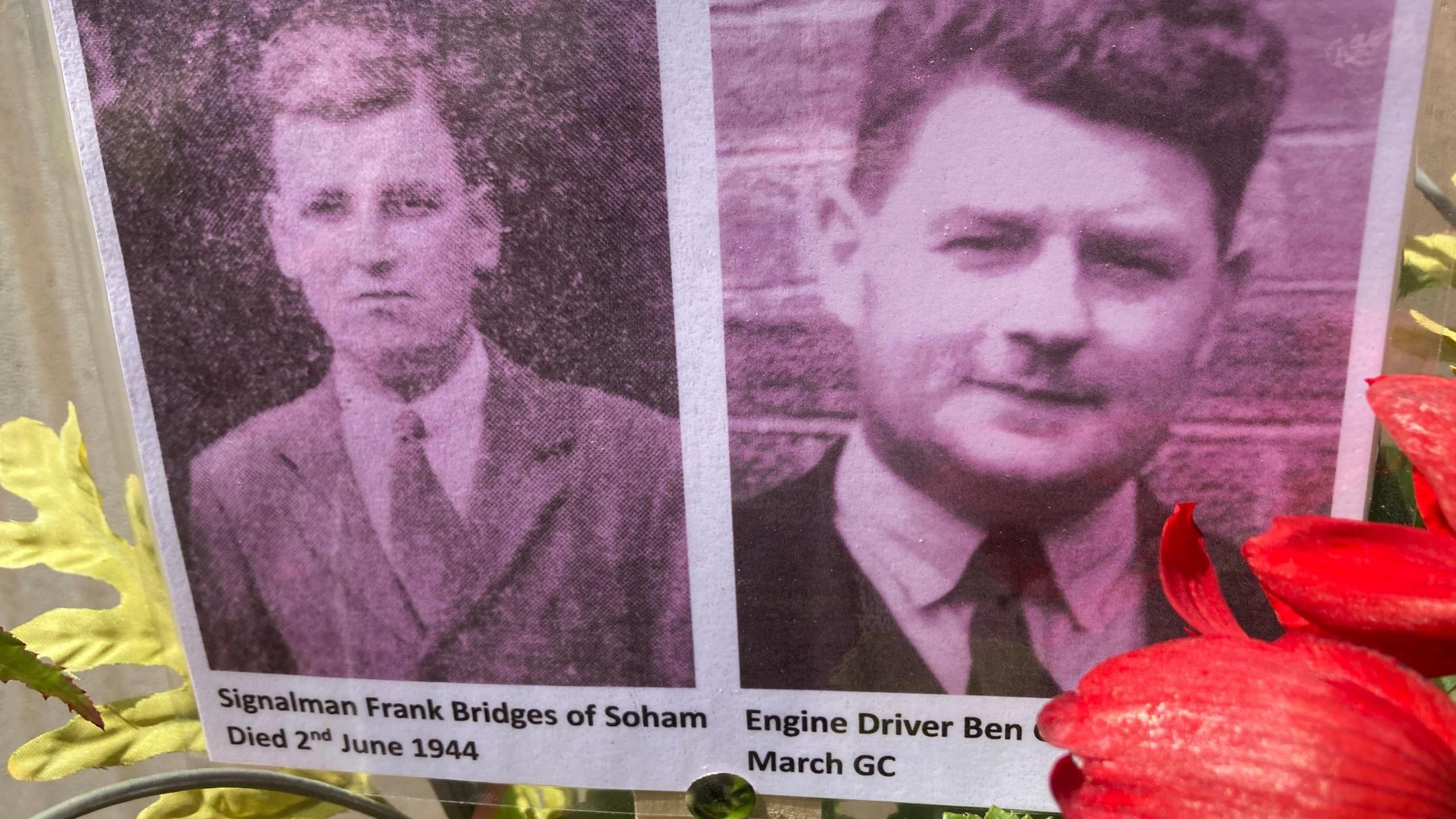
Signalman Frank Bridges and fireman James Nightall both died in the explosion, while engine driver Ben Gimbert was seriously injured
Driver Benjamin Gimbert and fireman James Nightall were staffing the 51-wagon train, 44 of which were packed with 250lb (113kg) and 500lb (226kg) bombs.
Mr Nightall got out of the engine and, with train guard Herbert Clarke, uncoupled the blazing munitions wagon from the rest, in a bid to drive it out of town.
Mr Nightall and signalman Frank Bridges were killed when the bombs went off.
Mrs Martin said: "It takes one 125lb (56kg) bomb to demolish a 20-story tower block.
"22,000lb (9.8 tonnes) of explosives went off when that one wagon exploded."
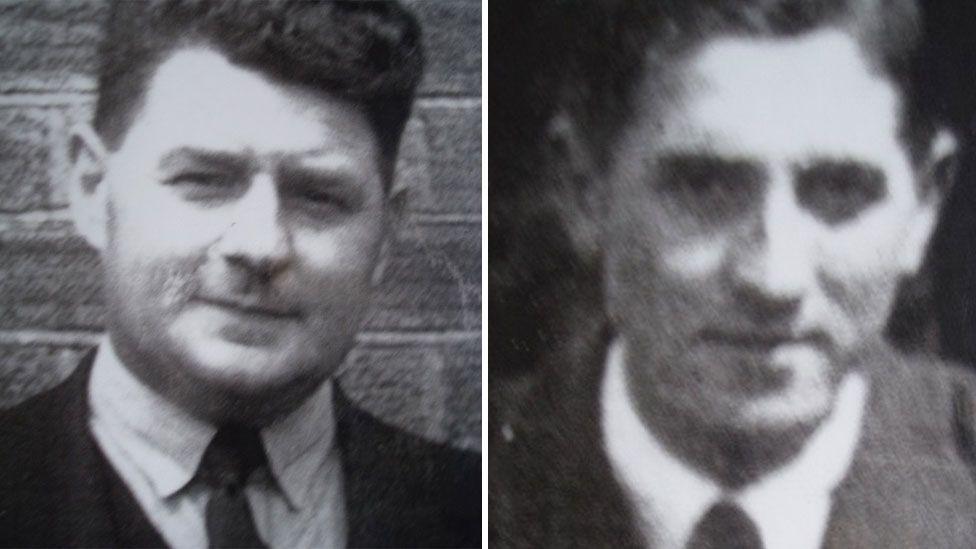
Mr Nightall (right) uncoupled the burning wagon from the rest of the train and driver Mr Gimbert (left) drove it out of the town, in a bid to save it from total destruction
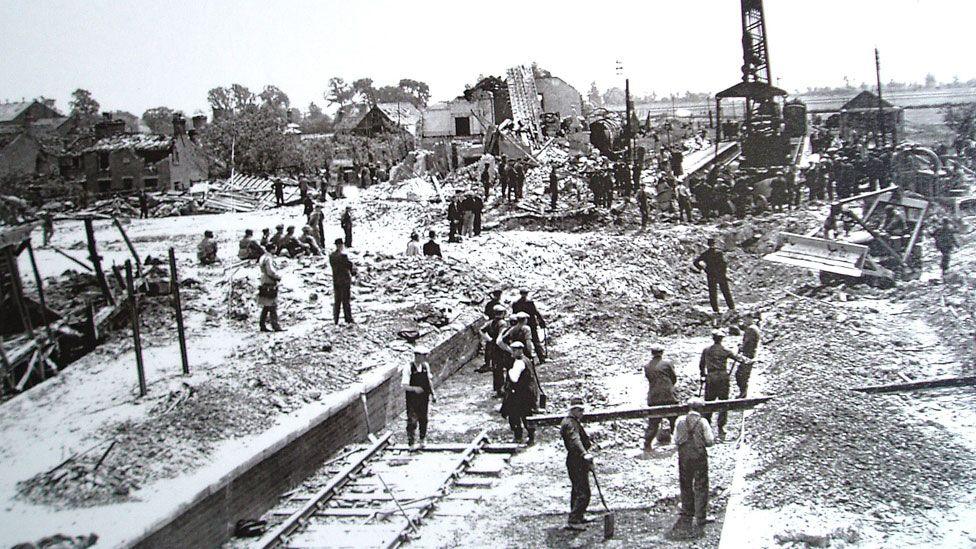
The disaster happened days before D-Day, so it was imperative the line was repaired as fast as possible
Thirteen homes were demolished, many people were injured and repairs to the 800 damaged buildings went on for three years, but it was likely the town would have been destroyed if the men had not acted the way they did.
Mr Nightall and Mr Gimbert were awarded the George Cross for their efforts.
"Every time we mark the anniversary, more people come forward with information," said Mrs Martin, who gives regular talks about the disaster across East Anglia.
In the next couple of years she plans to investigate further a suggestion the explosion was caused by sabotage.
The service at St Andrew's Church is at 10:00 BST, external and a full peal of bells will be rung at 14:45.
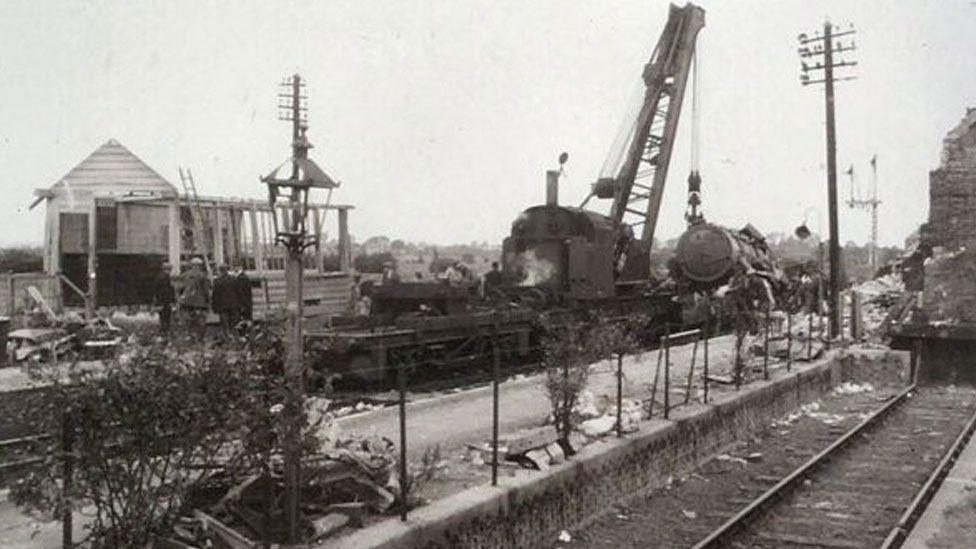
"Only two people died because of the actions of the men and all four of them are Soham's heroes," Mrs Martin said
Follow Cambridgeshire news on Facebook, external, Instagram, external and X, external. Got a story? Email eastofenglandnews@bbc.co.uk, external or WhatsApp us on 0800 169 1830
Related topics
- Published24 June 2023

- Published27 June 2021
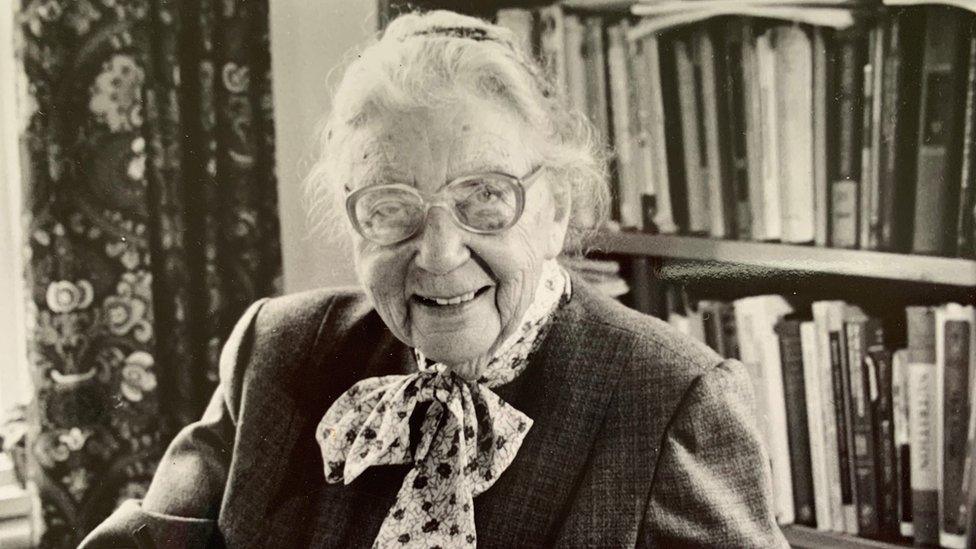
- Published2 June 2019
